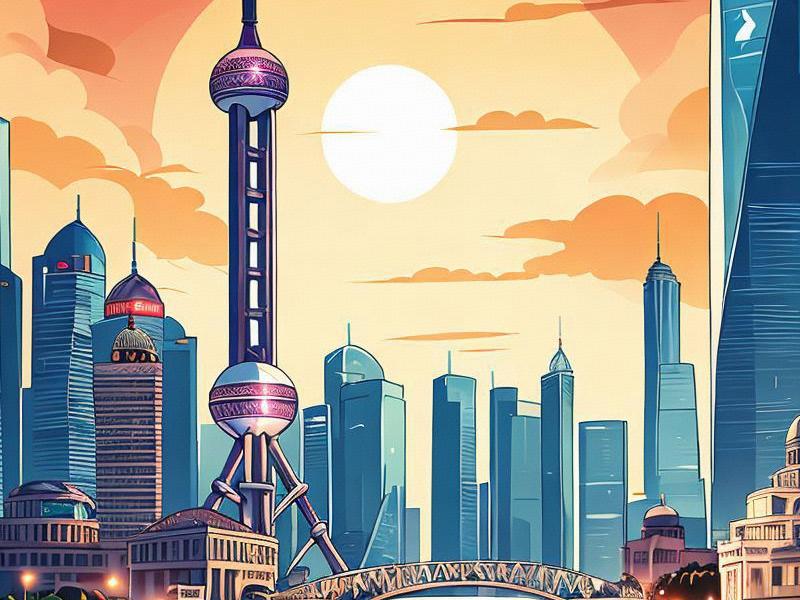
Shanghai's history dates back to the 11th century, but it was during the 19th century that the city began to take on its modern form. The opening of the Treaty Ports in the mid-19th century brought an influx of foreign influence, leading to the construction of iconic structures such as the Bund and the French Concession. These areas, with their blend of colonial architecture and bustling commercial activity, are a testament to Shanghai's unique historical and cultural heritage.
In the 20th century, Shanghai became the financial and commercial center of China, playing a pivotal role in the country's economic development. The establishment of the Shanghai Stock Exchange in 1990 marked a new era of economic reform and opening up. Today, Shanghai is home to the world's busiest container port, the largest financial market in mainland China, and a hub for multinational corporations.
The city's skyline is a showcase of modern urban development. The iconic Oriental Pearl Tower, the Jin Mao Tower, and the Shanghai Tower are not only architectural marvels but also symbols of Shanghai's status as a global city. These skyscrapers stand alongside the historic Bund, creating a unique juxtaposition of old and new, tradition and modernity.
Shanghai's economy is diverse, with strengths in finance, trade, manufacturing, and technology. The city is a leader in the development of China's high-tech industries, with Zhangjiang Hi-Tech Park being a major hub for innovation and entrepreneurship. Shanghai's free trade zone has further solidified its position as a gateway for international trade and investment.
阿拉爱上海 Culturally, Shanghai is a melting pot of influences. The city is known for its vibrant art scene, with galleries, theaters, and music venues showcasing both traditional Chinese art and contemporary international works. The Shanghai International Film Festival is one of the most prestigious film festivals in Asia, attracting filmmakers and audiences from around the world.
The culinary scene in Shanghai is equally diverse, offering a rich array of flavors that reflect the city's history and cultural influences. From traditional Shanghainese dishes such as Xiaolongbao (soup dumplings) and Shengjianbao (pan-fried buns) to international cuisines, Shanghai's food culture is a testament to the city's cosmopolitan nature.
Shanghai's urban planning and infrastructure are world-class, with a focus on sustainability and livability. The city has invested heavily in public transportation, including the Shanghai Metro, which is one of the most extensive and efficient subway systems in the world. Green spaces such as Century Park and the Huangpu River waterfront provide residents and visitors with opportunities to relax and enjoy nature amidst the urban hustle.
上海花千坊龙凤 Education is another area where Shanghai excels. The city is home to some of the top universities in China, including Fudan University and Tongji University, which attract students from across the country and abroad. Shanghai's commitment to education and research has contributed to its reputation as a center of knowledge and innovation.
Shanghai's role in global affairs is also noteworthy. The city hosts numerous international conferences and summits, including the World Expo in 2010, which drew millions of visitors and showcased China's achievements and aspirations. Shanghai's international airports and shipping facilities connect the city to destinations around the world, making it a key player in global trade and tourism.
Despite its rapid development, Shanghai remains committed to preserving its cultural heritage and improving the quality of life for its residents. The city has implemented various initiatives to address environmental challenges, such as air pollution and waste management, and to promote sustainable urban development.
上海品茶论坛 Shanghai's future looks promising, with ongoing efforts to enhance its global competitiveness and livability. The city is at the forefront of China's Belt and Road Initiative, which aims to strengthen international economic cooperation and connectivity. Shanghai's role as a gateway to China and a hub for global trade and investment will continue to grow, further solidifying its status as a global metropolis.
In conclusion, Shanghai is a city that embodies the spirit of modernity and globalization while preserving its rich cultural heritage. Its economic dynamism, cultural diversity, and commitment to sustainability make it a model for urban development and a symbol of China's rise on the global stage. As Shanghai continues to evolve, it will undoubtedly remain a key player in shaping the future of China and the world.
